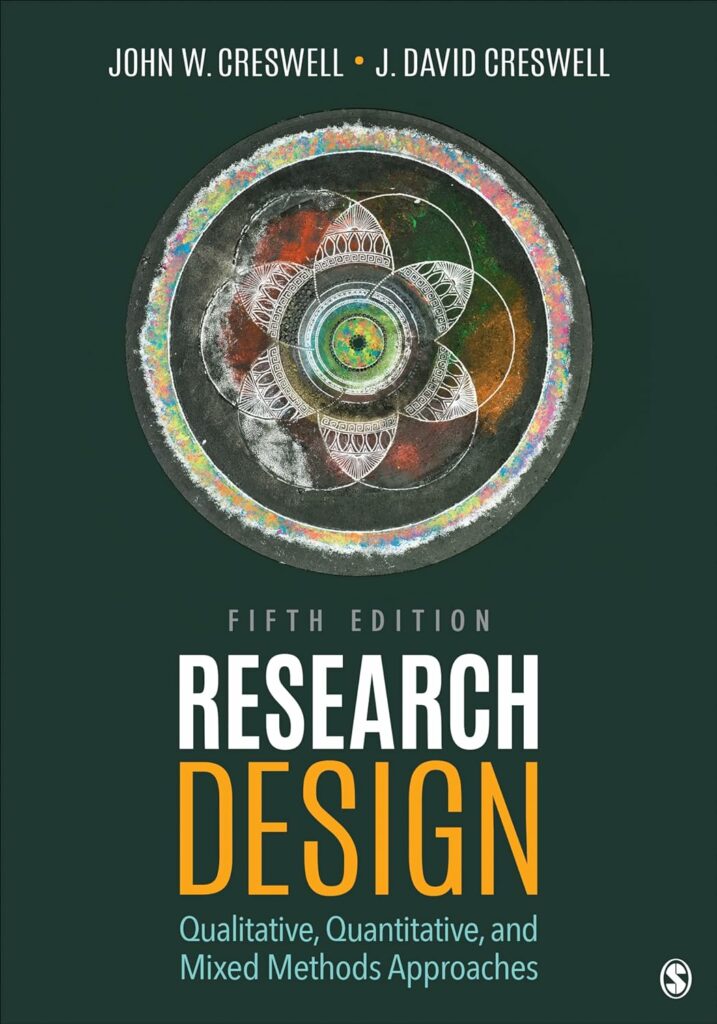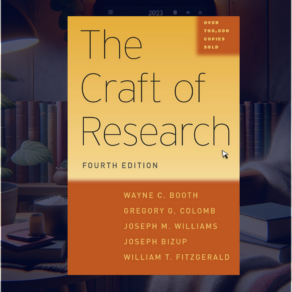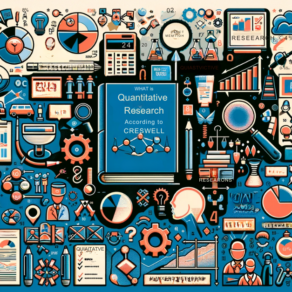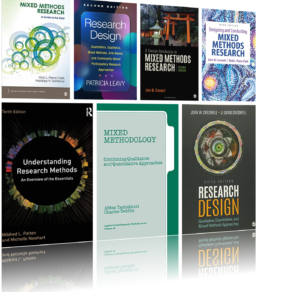As a scholar who navigated the complex terrain of academic research during my doctoral studies, I am intimately aware of the value that high-quality, accessible resources can bring to the table. Therefore, my aim with this post is to provide fellow researchers, scholars, and anyone interested in doing social research, with a carefully curated books on quantitative research.
Quantitative research, with its emphasis on objectivity and measurement, is a vast and rich field. The books featured in this list offer deep insights into its theoretical underpinnings, its practical applications, and the interpretative challenges it presents. Each of these texts has been selected based on its comprehensiveness, clarity, and practicality, and together they form a robust foundation for anyone wishing to delve into the world of quantitative research.
Whether you are a seasoned researcher looking to refine your approach or a novice looking to grasp the fundamentals, these books cater to all levels of understanding. From crafting sophisticated surveys to the intricacies of statistical analysis, these texts cover a range of topics that are integral to the quantitative research process.
As you explore this list, please bear in mind that it is by no means exhaustive. The field of quantitative research is ever-evolving, and new contributions are always on the horizon. Nevertheless, the knowledge contained within these pages remains as relevant and insightful as ever.
I hope that you will find these resources as valuable as I did. For those of you interested in qualitative research, check out my other post entitled best books on qualitative research.
1. Research Design: Qualitative, Quantitative, and Mixed Methods Approaches, by John W. Creswell and J. David Creswell
This widely recognized book offers a comprehensive study of qualitative, quantitative, and mixed research methodologies. Its distinguishing feature is its juxtaposition of all three research designs, making it a valuable resource for both new and experienced researchers. The authors provide a meticulous guide that starts with a fundamental understanding of philosophical suppositions, essential aspects of the research process, literature review, theory application in research, and the significance of writing and ethics in academic inquiry.
The updated edition includes a detailed discussion on research proposal design and research study steps. It sheds light on the positioning of epistemological and ontological views in relation to the selected research question and methodology. It also delves into the transformative worldview and features expanded insights into case studies, participatory action research, visual methods, and action research in mixed methods.
2. Quantitative Research in Education: A Primer, by Wayne K. Hoy and Curt M. Adams
This book is a practical guide to help you with your quantitative research. The authors first introduce readers to the nature of research and science, before presenting the meaning of concepts and research problems. They aim to dispel the notion that quantitative research is overly difficult, too theoretical, and lacks practicality.
The book is rich with concrete examples and illustrations, and emphasizes conceptual understanding and the practical use of quantitative methods while teaching strategies for developing original research hypotheses.
3. Quantitative and Statistical Research Methods, by William E. Martin and Krista D. Bridgmon
This user-friendly textbook helps students to understand and apply procedural steps in carrying out quantitative studies. It explains statistics while guiding readers through the steps of the hypothesis-testing process, from hypothesis to results.
The book offers a hands-on resource for each chapter, covering a single research problem and providing directions for implementing the research method from start to finish. It also features a Research Analysis and Interpretation Guide to help students analyze research articles.
4. Quantitative Research Methods for Communication, by Jason S. Wrench, Candice Thomas-Maddox, and Virginia Peck Richmond
This book provides a relevant and accessible guide to quantitative research in the field of communication. The authors encourage students to take an active role in the learning process, equipping them with the tools needed to locate, conduct, collect, and present their research.
The authors use real communication studies and data sets to make communication research relatable for students. The text features chapter objectives, case studies, data sheets, and key terms throughout to facilitate learning.
Related: Books on Mixed Methods Research
5. Doing Survey Research: A Guide to Quantitative Methods, by Peter M. Nardi
This book is a practical guide for those who want to learn how to conduct quantitative studies, either for an undergraduate project, a graduate-level thesis, or a survey that an employer may require. The book prepares beginners to conduct their own survey research, write up the results, and understand and critically interpret other people’s research.
Also, the book merges survey design with data analysis and interpretation. This new edition includes coverage of Big Data, Meta-Analysis, and A/B testing methodology.
6. Quantitative Methods for the Social Sciences, by Daniel Stockemer
This textbook provides an essential introduction to survey research and quantitative methods. The book guides students through the various steps of the survey research process and helps them apply those steps toward a real example.
More specifically, the book introduces students to the importance of survey research, preparing a survey, conducting a survey, and analyzing a survey.
Students are shown how to create their own questionnaire, achieve empirical findings, and use the data to test their hypotheses in a bivariate and multivariate realm. Additionally, the book explains the theory, rationale, and mathematical foundations of these tests, and provides instructions on how to conduct the tests in SPSS and Stata.
7. Quantitative Research Methods: From Theory To Publication, by Dr. Nicholas Harkiolakis
This book covers the vast majority of quantitative methods found in social sciences research. The author designed the book based on his years of experience teaching quantitative methods courses for graduate programs in Europe and the USA. The book is intended for readers who don’t have a background in quantitative research.
All concepts presented in this book are defined and introduced, and alternative and overlapping expressions and keywords used in quantitative research are presented to enhance the reader’s understanding.
The book includes examples that are easily replicated in spreadsheets like Excel, and provides commands for executing the various methods for SPSS in footnotes. The book’s website provides additional material for executing the methods discussed, as well as all book images in higher resolution and links to other sources online.
8. Quantitative Research for the Qualitative Researcher, by Laura M. O′Dwyer and James A. Bernauer
This book underlines the complementary nature of quantitative and qualitative research and elucidates the fundamental structure and purposes of design, measurement, and statistics within the framework of a research report, including a dissertation.
The text encourages the reader to perceive quantitative methodology as a process for systematically discovering new knowledge that can help describe, explain, and predict the world around us.
Final thoughts
Wrapping up this compilation of insightful reads on quantitative research, it’s clear that each of these books brings something unique to the table, making them indispensable resources for researchers at various stages of their careers. From the foundational understanding of quantitative methods to advanced statistical analysis, these books collectively cover a spectrum of topics that are vital for conducting robust and meaningful research. The practical advice, real-life examples, and step-by-step guides provided across these texts are designed to demystify the world of quantitative research, making it more accessible and less daunting, regardless of your level of expertise.















